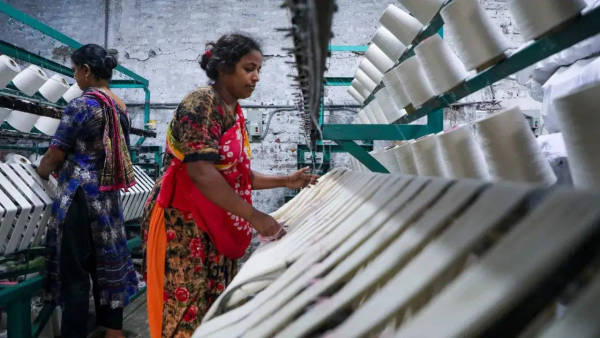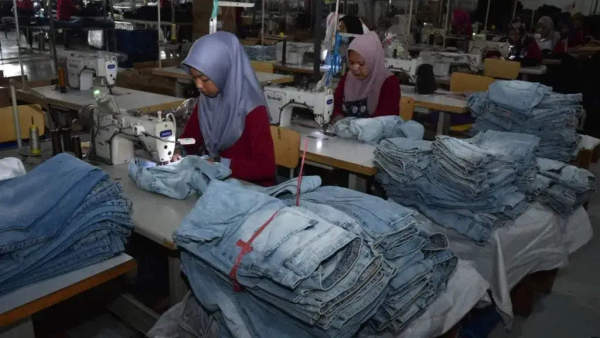
Bangladesh is facing many challenges after the coup of the Sheikh Hasina government. Bangladesh's textile industry is suffering the most loss in this. The annual business of $ 55 billion is facing a deep crisis, the situation is such that many companies do not even have money to pay salaries to their employees.
In the last three decades, the image and fate of Bangladesh was changing on the strength of the textile industry. Clothes of many famous brands like Zara were manufactured in factories in Bangladesh. But as soon as the Sheikh Hasina government left, this business was under threat. However, India is benefiting a lot from this crisis in the neighboring country. According to the data of the Ministry of Commerce, India's textile exports have increased by 8.5 percent between April and September.
According to the USITC (United States International Trade Commission) of America, India's credibility for textile exports is increasing due to political instability in Bangladesh. The report says that India's political stability is an important factor for American buyers, due to which American brands are considering India as a reliable option for production and delivery compared to Bangladesh.

As soon as Sheikh Hasina's government left on 5 August, attacks on minorities and their homes and businesses started in Bangladesh. Due to security reasons, businessmen closed their factories and industries, which stopped production, while due to political instability, many brands started looking for an alternative to Bangladesh, for them India proved to be the most suitable place.
Photo of a textile factory (Aman Rochman/NP via Getty Images)
Apart from this, the ongoing power crisis in Bangladesh has also caused a big loss to the textile industry. Due to the lack of electricity for many hours in cities, production has slowed down, making it difficult to meet the global demand.
The situation in Bangladesh has worsened to such an extent that textile businessmen are not even able to pay salaries to their employees. On Wednesday morning, the employees of TNZ Apparel Limited had to take to the streets to demand their wages for September. Hundreds of protesters blocked the Dhaka-Mymensingh highway early in the morning and demanded their salaries.
According to a report in The Daily Star, one of the protesting workers said that 3300 people work in the factory and none of them have received their salary for the month of September, while the month of October is about to end.